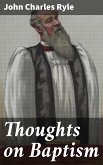In "The Thoughts of Blaise Pascal," readers delve into a profound exploration of philosophical reflection and theological inquiry. Composed as a series of fragments and reflections, Pascal's work showcases a blend of rigorous logic and emotive prose, characterized by his unique style that oscillates between mathematical precision and lyrical depth. Written during the 17th century, a time marked by significant tensions between faith and reason, this compilation captures the essence of Pascal's struggle to reconcile scientific inquiry with spiritual belief, thereby positioning it within the broader context of early modern philosophy. Blaise Pascal, a mathematician, physicist, and theologian, is renowned for his groundbreaking contributions to mathematics, particularly in probability theory and fluid mechanics. His personal journey through faith, influenced by a mystical experience at the age of 31, catalyzed a shift toward theological reflection. This transformative experience informed his critical view of rationalism and his emphasis on the necessity of grace, which resonates throughout "The Thoughts." Highly recommended for scholars, theologians, and anyone intrigued by the intersection of faith and intellectual pursuit, this work serves as a pivotal reflection on human existence and the divine. Pascal deftly invites readers to contemplate the complexities of belief, drawing them into a dialogue that remains relevant and thought-provoking to this day.
Dieser Download kann aus rechtlichen Gründen nur mit Rechnungsadresse in A, B, BG, CY, CZ, D, DK, EW, FIN, F, GR, H, IRL, I, LT, L, LR, M, NL, PL, P, R, S, SLO, SK ausgeliefert werden.









